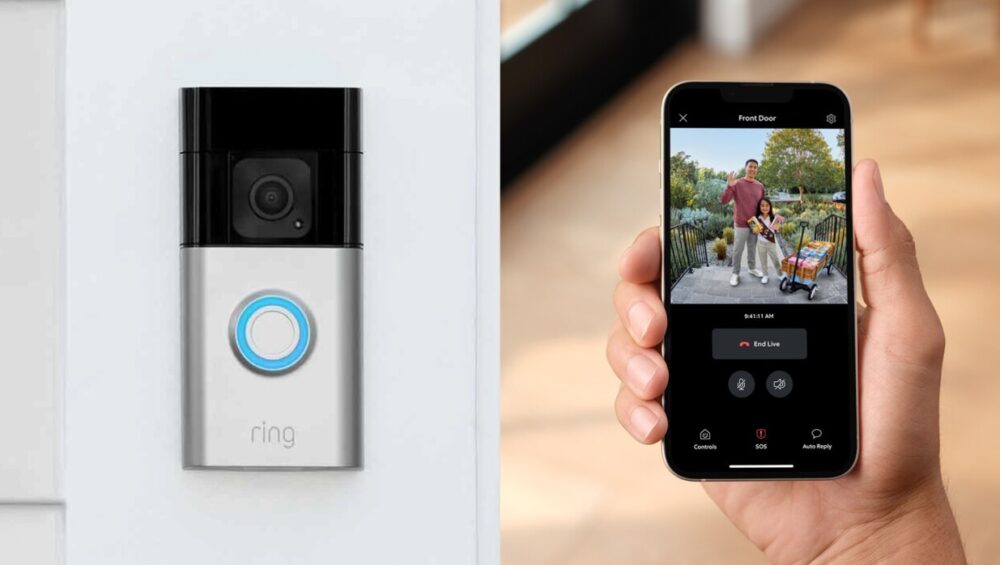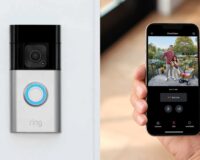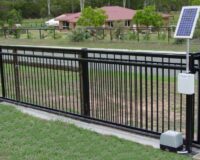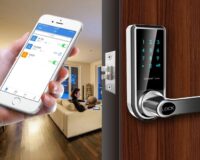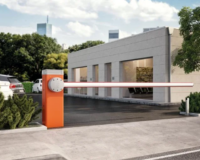Automated doors have emerged as a significant advancement in modern home security systems. Combining the latest technologies in automation, smart home integration, and enhanced physical security measures, these doors offer convenience and peace of mind for homeowners. This article explores the various aspects of automated doors in home security, including how they work, their benefits, features, and how they integrate with broader security systems.
Understanding Automated Doors in Home Security
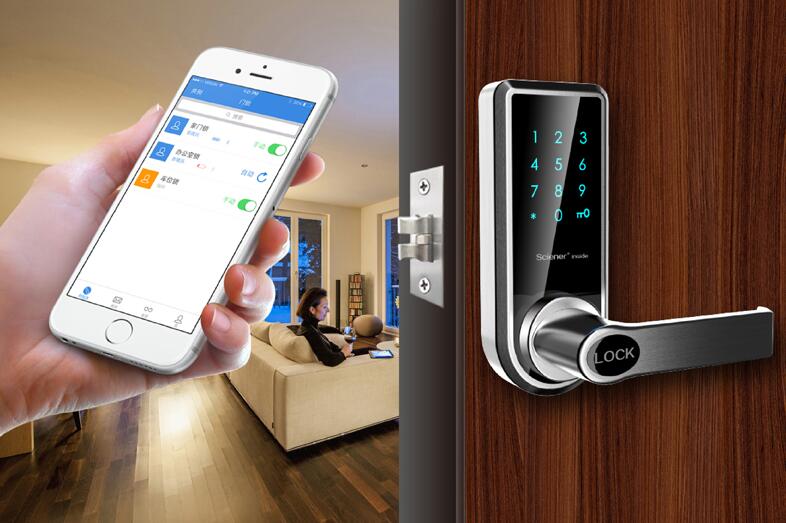
Automated doors are doors that use motorized mechanisms to open and close automatically, often controlled remotely via smartphone apps, key fobs, or other devices. In the context of home security, automated doors are not just about convenience—they are designed to offer enhanced protection through features like biometric authentication, smart locks, and access control systems.
These doors are typically used in entryways, garages, or gates, but are increasingly integrated into internal spaces as well. They can be part of larger smart home ecosystems, enabling seamless operation with other devices like security cameras, motion sensors, and alarm systems.
Key Features of Automated Doors for Security
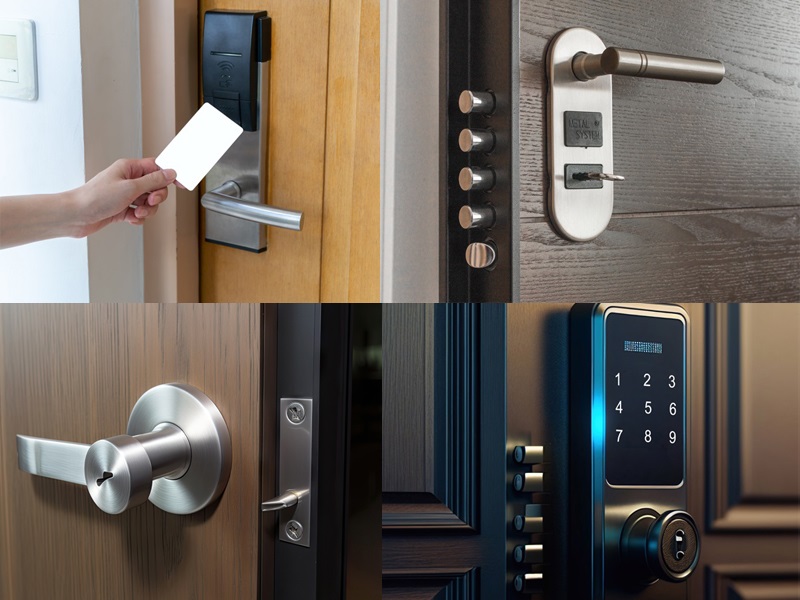
Several features make automated doors crucial in a modern home security setup:
- Biometric Authentication: Many automated doors come with advanced authentication methods like fingerprint or facial recognition, offering high-level security and eliminating the need for keys or codes that can be lost or hacked.
- Smart Locks: Automated doors are often equipped with smart locks that can be controlled remotely, allowing homeowners to lock or unlock doors from anywhere, even when they’re not home.
- Real-time Monitoring: Automated doors can be integrated with security cameras or video doorbells, allowing homeowners to see who is at the door and control access remotely.
- Access Logs: Some automated door systems keep a log of who enters and exits, giving homeowners valuable information about activity around their home.
- Timed Locking: Many systems allow you to schedule times for doors to automatically lock or unlock, providing extra security for daily routines or when you’re away.
Advantages of Automated Doors in Home Security Systems

Automated doors offer several advantages that enhance the overall security of a home:
- Convenience and Control: One of the most significant advantages is the ability to control the doors remotely. This allows homeowners to grant access to visitors or service personnel when they are away, without compromising security.
- Enhanced Security: Biometric features, smart locks, and integration with alarms and surveillance systems make automated doors far more secure than traditional door systems. The elimination of physical keys reduces the risk of unauthorized access.
- Real-time Alerts: Automated doors can be connected to mobile apps or home security hubs, sending real-time alerts if someone tries to force entry or if the door is left open. These alerts allow for quick action to address potential threats.
- Integration with Smart Home Systems: Automated doors can integrate with smart home systems like Amazon Alexa, Google Home, or Apple HomeKit. This allows users to automate routines where doors lock when they leave home, or unlock when they arrive.
- Energy Efficiency: For gates or garages, automation systems often include energy-saving features, reducing unnecessary energy consumption by ensuring doors or gates are not left open for extended periods.
The Role of Automated Garage Doors in Security
Garage doors are one of the most vulnerable entry points in a home. Automated garage doors can significantly boost security by integrating them with smart home security systems:
- Remote Access: Homeowners can open or close their garage door remotely, even from miles away. If a family member forgets to close the door, it can be done from a smartphone app.
- Automated Scheduling: Automated garage doors allow users to schedule times for the doors to close, ensuring that the garage isn’t left open overnight or during periods of absence.
- Integration with Surveillance Systems: Many systems integrate cameras or motion sensors that monitor the garage area, sending alerts to homeowners in case of suspicious activity.
Smart Gate Automation for Added Perimeter Security
Automated gates provide an additional layer of protection by securing the perimeter of a property. These gates can be controlled through various methods such as:
- Remote Control and Access: Similar to automated doors, gates can be opened or closed remotely, making it easier to manage who has access to your property.
- Vehicle Detection Systems: Automated gates can integrate with vehicle sensors to detect approaching cars and open automatically for authorized vehicles.
- Keypad or Biometric Entry: Gates can be equipped with keypads for PIN entry or advanced biometric recognition for added security.
- Integration with Alarms: In case of an unauthorized entry attempt, automated gates can trigger alarms or notify the homeowner through connected smart devices.
How Automated Doors and Gates Work with Surveillance Systems
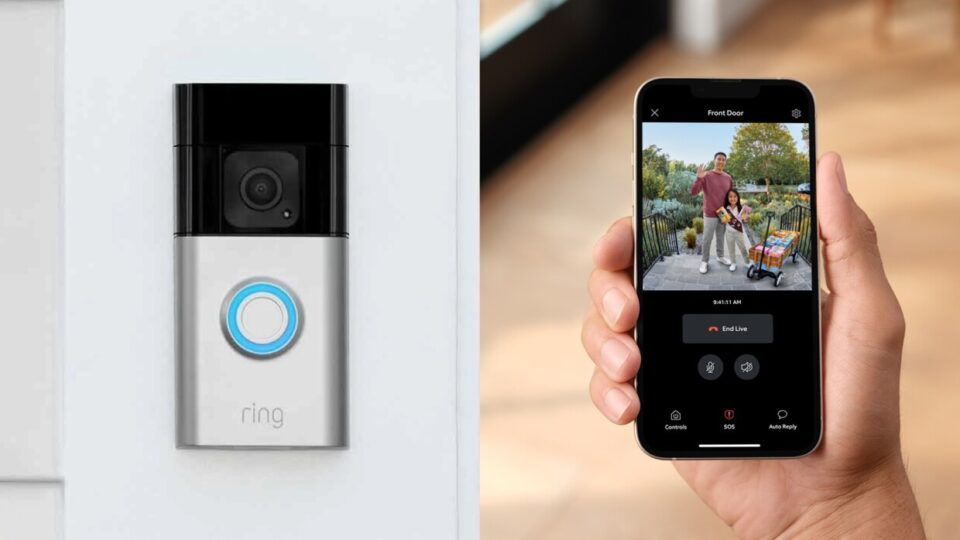
One of the biggest advantages of automated doors and gates is their ability to integrate with existing surveillance systems. This integration enhances overall security by ensuring that any entry point is monitored and recorded.
- Video Doorbells: Automated front doors can be integrated with video doorbells that record visitors and allow homeowners to communicate with them via a smartphone, even if they aren’t home.
- Surveillance Cameras: Automated gates often feature built-in cameras or can integrate with nearby surveillance systems to record and store footage of any activity near the gate.
- Intercom Systems: For gates, intercom systems allow homeowners to speak to visitors before granting access, enhancing security by verifying the visitor’s identity.
Challenges and Considerations
While automated doors offer significant security benefits, there are a few challenges to consider:
- Power Dependency: Automated doors rely on electricity, which means they may not function during a power outage unless there is a backup battery system in place.
- Hacking Risks: Any system connected to the internet has the potential to be hacked. Homeowners need to ensure that their automated systems are equipped with the latest security patches and encryption to protect against unauthorized access.
- Cost of Installation: The initial investment in automated doors, especially those with advanced security features, can be high. However, the added convenience and security benefits often justify the cost over time.
- Maintenance: Like any system, automated doors require regular maintenance to ensure smooth operation. Homeowners should be aware of potential mechanical issues or software updates.
The Future of Automated Doors in Home Security
As technology continues to evolve, automated doors will become even more advanced. Future trends may include:
- AI-Powered Security Systems: AI can be integrated into automated doors for enhanced facial recognition, learning behavior patterns to detect unusual activities around the entry points.
- 5G Connectivity: With the rollout of 5G networks, automated doors will have faster and more reliable connectivity, enabling real-time communication with home security systems.
- IoT Integration: The Internet of Things (IoT) will further enhance the integration of automated doors with other smart home devices, creating seamless security ecosystems.
- Sustainability Features: Future innovations may include more energy-efficient door systems, possibly using renewable energy sources like solar power, and smarter energy management.
Conclusion
Automated doors play a vital role in modern home security systems, offering unparalleled convenience, control, and protection. By integrating with smart home technologies and offering advanced features like biometric authentication, automated scheduling, and real-time alerts, they enhance the overall security of a property. As technology continues to evolve, automated doors will likely become even more integral to home security systems, providing homeowners with peace of mind and advanced protection against intruders.
Investing in automated doors not only improves security but also adds to the overall value of a home, making it a worthwhile consideration for any homeowner looking to upgrade their security infrastructure.

